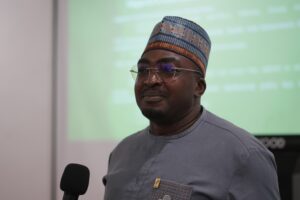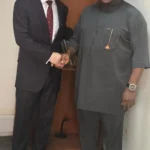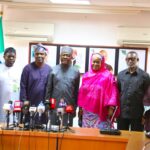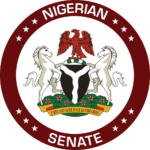By Felicia Imohimi
The Nigerian Conservation Foundation (NCF), in partnership with Nature Eco Capital, Business for Nature and other stakeholders on Friday in Abuja, inaugurated the Nigeria Business Advisory Group on Biodiversity (BAG).
Dr Joseph Onoja, Director General, NCF, in his remarks at the event, said the inauguration of BAG, the Nigeria Biodiversity Finance (BIOFIN) marked a significant milestone in the ongoing partnership with the partners.

He said that the partnership aimed to mobilise private sector action to support Nigeria’s biodiversity goals under the National Biodiversity Strategy and Action Plan (NBSAP).
He also said that the gestures were geared towards unlocking private sector engagement for the implementation of NBSAP.
According to him, the NBSAP will serve as a national framework for conserving biodiversity and ensuring it is sustainably used in alignment with the global goals and targets of the Convention on Biological Diversity.
The director general further said that the business group would serve as a multi-stakeholder platform to foster dialogue, policy alignment, and collaboration between business, government, and civil society in advancing nature positive development.
“The main objective of BAG is to enable the business community and private sector take their place in the implementation of the conservation of biodiversity in Nigeria.
“The objectives of BIOFIN and BAG is to align stakeholders on the Nigeria’s NBSAP progress and next steps for implementation; build understanding of BIOFIN and its methodology to strengthen biodiversity finance planning.
“It co-defines the role, structure and next steps for operationalising the BAG including commitments towards the Business Action Plan (BAP),” he said.
According to Onoja, when Nigeria signed the Global Biodiversity Framework of the UN Convention on Biological Diversity, there was a need to have an all-of-society, private sector and all-of-government approach which is one of the major gaps.
“So, we came together as partners with Nature Eco Capital with funding from Business for Nature to make that happen.
“This is because raw materials are taken from nature, there is, therefore, the need for the business to have that interest in nature for continuity and perpetuity of their businesses.
“So, whatever they do, they will not harm nature negatively, because conservation of biodiversity is the business of everybody.”
Onoja further said that with the establishment of the group, the NCF together with stakeholders, would now be able to develop business action plans for biodiversity.
“This will help us see what we can do to continue to improve the conservation of biodiversity in Nigeria,” he said.
He added that the partnership with Business for Nature, a global coalition of businesses was to ensure that nature’s base solution was not left behind in the country.
Also speaking, Mrs Oluwasooto Ajayi, Africa Lead for Business for Nature, harped on the benefit of BAG to the organisation.
Ajayi said that the organisation with over 100 partners across the globe, aimed to activate and accelerate the transition to a nature-positive economy.
“Through the partnership, we will be shaping the regional and global direction, while at the same time enabling national implementation of the global biodiversity framework.
“One of our focuses for long has been advocacy for the global biodiversity framework, and now we are looking at implementation.”
While revealing that Africa had 25 per cent of the world’s biodiversity, she identified Nigeria as one of the most influential countries in the continent.
“It is important, therefore, for us to have this project in Nigeria and other influential countries to show what is possible and how businesses can get involved in supporting the implementation of business-related targets of the global biodiversity framework.
“We want to have an economy that recognises the foundation that we have through biodiversity.
“This support we are providing and the technical one from our partners are just meant to catalyse a lot more,” she further said. (NAN)(www.nannews.ng)
Edited by Deborah Coker












